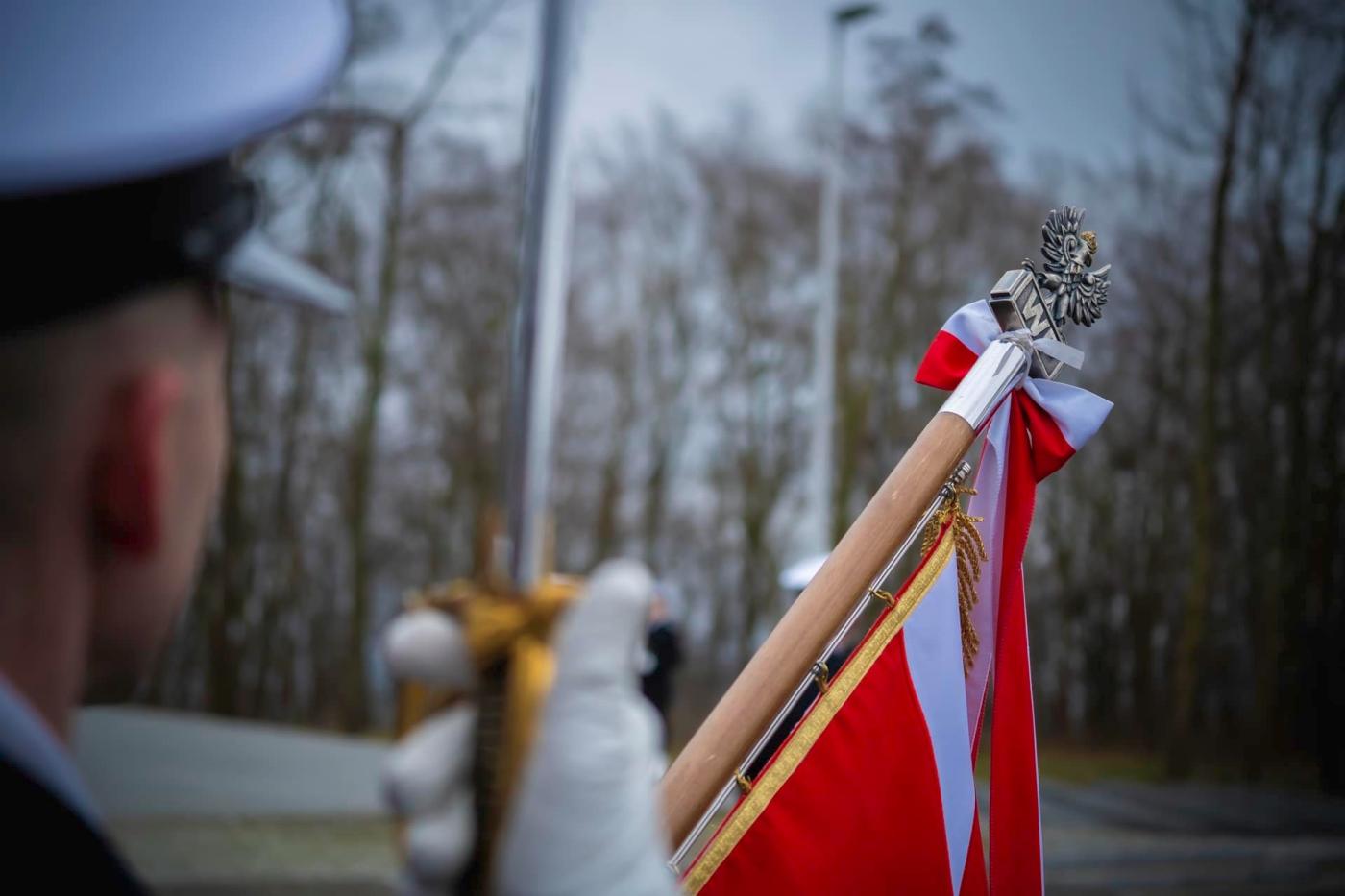In memory of the Cursed Soldiers. Andrzej Duda: "It is never enough to serve Poland, this great idea"
The National Day of Remembrance for the Cursed Soldiers is a time to honor the heroes of the anti-communist underground—soldiers who, after World War II, refused to submit to an imposed regime and continued their fight for freedom and national sovereignty. Their unwavering stance and loyalty to the ideals of independence form the foundation of our national identity. On March 1st, we pay tribute to them, emphasizing that their sacrifice and dedication have not been forgotten.
history navy news01 march 2025 | 12:49 | Source: Gazeta Morska | Prepared by: Kamil Kusier | Print

fot. st. chor. szt. mar. Piotr Leoniak 3 FO / MW RP
The President of the Republic of Poland, Andrzej Duda, highlighted the importance of remembering the Cursed Soldiers during the commemorative events.
- They were crushed, murdered, and buried in nameless graves to erase their memory from Polish history. Fortunately, this memory endured, passed down through generations, said Andrzej Duda.
It is thanks to the determination of historians, social organizations, and the families of these heroes that their remains have been found and their rightful place in Poland’s history restored.
The Polish Navy also actively participates in these commemorations, paying tribute to these indomitable soldiers. According to representatives of the naval forces, the National Day of Remembrance for the Cursed Soldiers serves as an annual reminder of the anti-communist and pro-independence underground fighters, without whose determination, unyielding will, and dedication, today’s sovereign, free, and independent Poland would not exist.
Across the country, ceremonies take place, with soldiers laying wreaths at monuments commemorating the victims of communist repression.
President Andrzej Duda also addressed the younger generation in Warsaw, urging them to cherish independence.
- Respect the fact that today we govern ourselves, but this will only be possible if we are strong, if we can defend ourselves, said the President of Poland.
These words hold particular significance today, as Poland strengthens its armed forces and solidifies defense alliances, ensuring national security, especially in the face of ongoing war beyond its borders.
The commemorations of March 1st are not only a tribute but also a warning—to never forget those who perished for freedom.
- I thank everyone who not only remembered but dedicated their lives to finding and commemorating them. Thank you for your dedication to the cause of the Republic—for it is about its very existence to remember its heroes, why they sacrificed their lives, and the values they represented, said Andrzej Duda.
The Polish Navy underscores that the heroism of the Cursed Soldiers serves as a model of patriotism for today's soldiers, who serve under the white and red flag. They continue the work of their predecessors, safeguarding Poland’s security on land and at sea.
Thus, the March 1st commemorations are not only an expression of tribute but also a reminder that freedom is never guaranteed—it requires remembrance, strength, and determination from future generations.
The ceremony was also attended by Dr. Karol Nawrocki, President of the Institute of National Remembrance, who emphasized the social phenomenon of the struggle to preserve the memory and history of Polish heroes.
- To the eyes of fools, they seemed to have perished; their passing was considered misfortune, and their departure—annihilation. Yet they endure in peace and in national memory. However, for our heroes to become part of our collective consciousness, many tragedies had to unfold. After 1945, they faced cruelty—brutal interrogations by communist secret police, broken families, surveillance, and relentless propaganda. Even after 1989, efforts were made to erase their memory. The Cursed Soldiers defended Poland from 1939 onwards, remaining loyal to their oath of a free homeland. They fought in the Home Army, Peasant Battalions, National Armed Forces, and other state formations. After 1945, they did not lay down their arms; they wanted a free Poland, not a Soviet colony. They were the conscience of the nation—unyielding, resolute, devoted to the idea of independence, said Karol Nawrocki.
He further noted that it took many years for the Polish state to properly commemorate the Cursed Soldiers.
- Thanks to the late Prof. Janusz Kurtyka and the late President Lech Kaczyński, we now have March 1st as their official day of remembrance. After the Smolensk tragedy, many attempted to erase their history, but it was social activists, the Łączka Foundation, football supporters, and part of the political community who ensured that the memory of the Cursed Soldiers would endure, said Karol Nawrocki.
Buy us a coffee, and we’ll invest in great maritime journalism! Support Gazeta Morska and help us sail forward – click here!
Kamil Kusier
redaktor naczelny
comments
Add the first comment
see also
December 1970: remembering the maritime workers of Gdynia
Cadet Day: tradition, heritage and the professional formation of future naval officers
Gdynia marks its centenary. A port city that shaped Poland’s maritime future
A commanding return: former CO of KNM Stord revisits his submarine decades later
Formoza: 50 years of Poland’s elite naval commandos. Half a century of maritime special operations
Golden Cross of Honor for the president of PGZ Naval Shipyard
Independence - a sea of opportunities. A free, maritime Poland. President Karol Nawrocki: Seize the chance!
Świnoujście marks Poland’s Independence Day with cavalry parade and naval presence
Australian Defence force marks Remembrance Day
Maritime All Souls’ Day. Honoring those who never returned from the sea
ADVERTISEMENT
ADVERTISEMENT